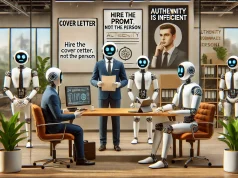Let’s be honest—writing a resume can feel like trying to impress someone on a dating app. You want to stand out, but you don’t want to come off as trying too hard (or worse, faking it). So how do you create a resume that makes employers swipe right, without all the fluff and BS?
Don’t worry—we’ve got your back. This ultimate guide will help you craft a resume that shows off your skills, personality, and experience in a way that’s professional and attention-grabbing. Whether you’re just starting your career or looking to level up, here’s how to build a resume that stands out from the crowd without overdoing it.
1. Keep It Real (No Exaggeration Required)
First things first: keep it real. Employers can see right through buzzwords and BS, so avoid phrases like “guru,” “ninja,” or “rockstar.” Instead, focus on what you actually do well. Highlight your achievements and strengths honestly, without inflating your job titles or responsibilities. It’s okay if you don’t have years of experience or haven’t saved the world (yet)—employers are looking for authenticity, not someone who sounds like a LinkedIn influencer.
Be clear and straightforward. If you increased sales, led a project, or learned a new skill, say it! But don’t feel like you have to embellish the details. Your resume is about showing the real you, not the version you think employers want to see.
2. Use Action Words (Skip the Boring Stuff)
Your resume shouldn’t read like a boring list of tasks. Instead of saying, “Responsible for managing social media,” go with action-packed language like, “Led social media strategy, increasing engagement by 40% in six months.”
Action words like “managed,” “designed,” “implemented,” “created,” and “developed” bring your resume to life and make it clear that you did things, not just observed them from the sidelines. It’s about showing that you’re someone who takes action, gets results, and makes things happen.
3. Tailor It to the Job (Every Time)
We know—sending out a generic resume to 100 jobs is easier, but it’s way less effective. The real trick to standing out? Tailoring your resume for each position you apply for. It sounds like extra work, but trust us, it pays off.
Read the job description carefully, and tweak your resume to match the specific skills and experience the employer is looking for. You don’t have to rewrite your whole resume, but highlighting the most relevant parts makes a huge difference. Think of it like customizing your character in a game—you’re still the same awesome player, but you’re showing off the skills that matter most for the current mission.
4. Show, Don’t Just Tell (Metrics Are Your Best Friend)
If you really want to stand out, don’t just tell employers what you did—show them. Use numbers, stats, and concrete examples to back up your accomplishments. Instead of saying, “Improved website traffic,” say, “Increased website traffic by 25% in three months through SEO and content marketing strategies.”
Quantifying your achievements shows that you can deliver real results, and it gives employers a better idea of what you can bring to the table. Numbers are your secret weapon—they cut through the fluff and prove that you know your stuff.
5. Highlight Your Skills (But Don’t List Everything)
Listing every single skill you’ve ever learned isn’t the way to go. Instead, focus on the skills that are most relevant to the job you’re applying for. Do they need someone with experience in Photoshop? SEO? Data analysis? Make sure those skills are front and center.
Keep your skills section clean and organized, and avoid throwing in random skills just to fill space. Listing “Microsoft Word” as a skill in 2024 is like saying you can breathe air—it’s expected. Stick to the skills that will actually impress employers and set you apart from the competition.
6. Keep It Clean and Simple (Skip the Flashy Templates)
While it’s tempting to use a flashy, overly designed resume template, simple is usually better. Employers want a resume that’s easy to read, cleanly formatted, and professional. You can still inject some personality, but avoid the neon colors, complicated fonts, or wild graphics (unless you’re applying for a super creative role, like a graphic designer).
Stick to a simple format with clear headings, bullet points, and plenty of white space. Make sure your contact information is easy to find, and keep everything aligned and consistent. A clean, polished resume is like a well-tailored outfit—it just looks professional.
7. Add a Splash of Personality (But Keep It Professional)
You don’t have to strip all the personality out of your resume—this isn’t a robot contest. While it’s important to stay professional, it’s also okay to show a bit of who you are. Include a short summary at the top that gives a sense of your personality and what drives you, like:
“Creative and detail-oriented marketing professional with a passion for storytelling and social media strategy. Eager to help brands build meaningful connections with their audience.”
Just keep it professional and relevant to the job. If you’re an avid dog lover or love to travel, you can sneak that in (as long as it makes sense). But save the “Game of Thrones marathon champion” line for your personal bio, not your resume.
8. Proofread Like a Pro (Typos Are the Enemy)
You’d be surprised how many resumes get tossed because of typos or grammar mistakes. Don’t let that be you. Take the time to proofread your resume carefully, or better yet, ask a friend to give it a second look. Small errors can make a big difference in how professional you appear, so make sure your resume is polished and error-free.
9. Keep It One Page (Unless You’re a Superhero)
For most people, a one-page resume is plenty. Employers don’t have time to read a novel—they want a quick snapshot of your experience and skills. Keep your resume concise and to the point. If you’ve got a ton of relevant experience and absolutely can’t fit it all on one page, a two-page resume is okay, but only if everything on there adds value.
Final Thoughts
Crafting a resume that stands out doesn’t mean loading it with buzzwords or trying to be someone you’re not. It’s about being real, highlighting your skills and accomplishments in a way that’s clear, concise, and professional. Keep it simple, show off your best self, and skip the BS—you’ve got everything you need to impress employers, and with these tips, you’re well on your way to landing that dream job.




























